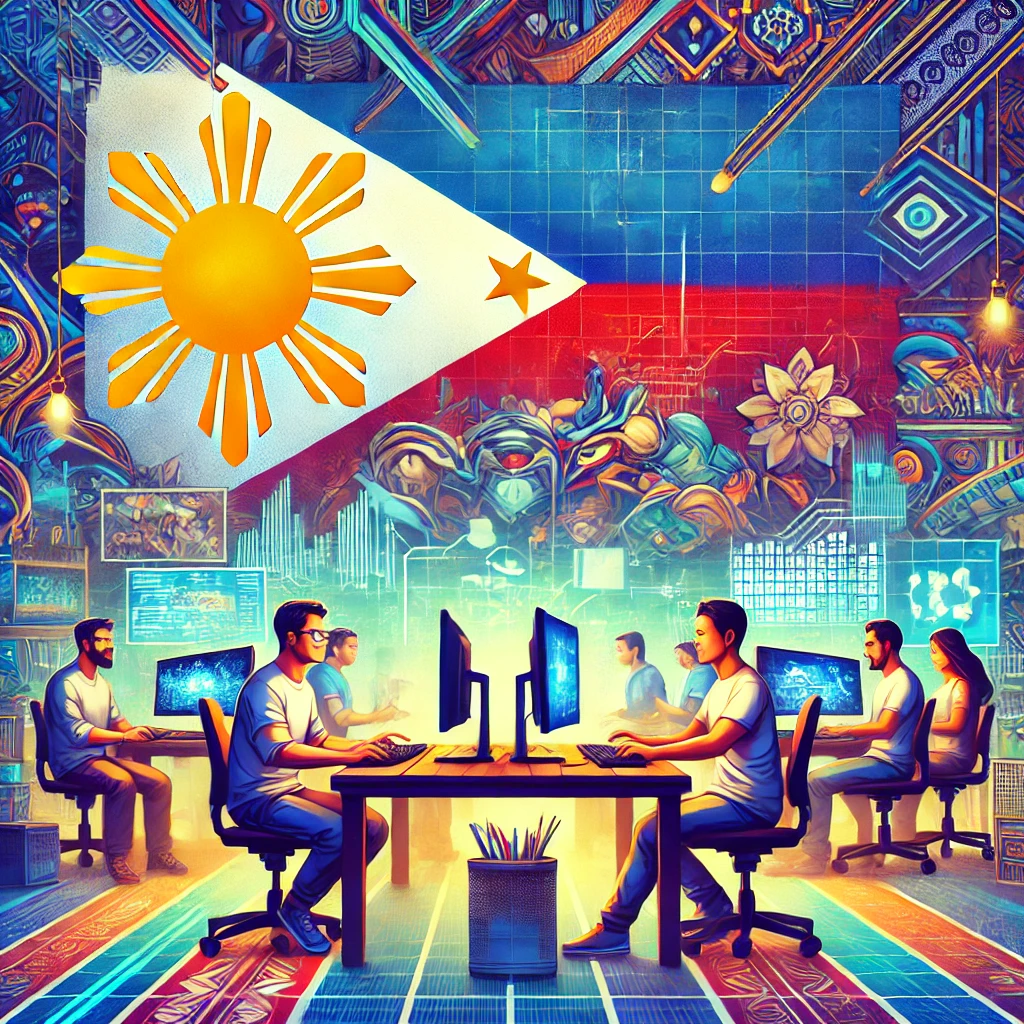The gaming industry is booming globally, and the Philippines is emerging as a significant player in this dynamic field. With a rapidly growing market and a talented pool of developers, the Philippine gaming scene is thriving. Recent reports show that the gaming industry in the country has seen substantial revenue growth and an expanding player base. This blog explores the reasons behind the rise of the gaming industry in the Philippines and why local game developers are making their mark on the global stage.

The Growth of the Gaming Industry in the Philippines
The Expanding Gaming Market
The gaming market in the Philippines is growing at an unprecedented rate. Mobile and PC gaming have become mainstream, with millions of Filipinos engaging in these platforms daily. This rise is fueled by increasing internet penetration and affordable gaming devices, making gaming accessible to a broader audience.
Increasing Demand for Locally Developed Games
Filipino gamers are showing a growing interest in locally developed games that reflect their culture and values. Games with Filipino elements resonate not only domestically but also internationally, as global audiences seek unique and culturally rich gaming experiences.
Government and Private Sector Support
The Philippine government and private sector are playing vital roles in fostering the growth of the gaming industry. Initiatives such as tech incubators, funding programs, and mentorship opportunities for developers are providing much-needed support. Additionally, private companies and startups are stepping in to help Filipino developers bring their ideas to life.
Why Local Game Developers Are Thriving
Talent and Creativity
Filipino game developers are known for their exceptional talent and creativity. They excel in crafting compelling narratives, innovative designs, and immersive gameplay experiences. This creativity has positioned the Philippines as a hub for world-class game development.
Access to Advanced Tools and Technologies
Local developers have access to cutting-edge game development tools like Unity and Unreal Engine. Online platforms and resources also allow them to continuously enhance their skills, keeping them competitive on the global stage.
Affordability and Outsourcing Opportunities
The Philippines is a cost-effective destination for game development outsourcing. Global companies partner with Filipino developers for high-quality output at competitive prices, further boosting the local industry.
Cultural Adaptability
Filipino developers excel at integrating global trends with local cultural elements. This adaptability helps them create games that appeal to diverse audiences, making their work stand out in international markets.
Growing Community and Collaboration
The rise of game developer communities and events in the Philippines fosters collaboration and innovation. These communities provide opportunities for knowledge-sharing and partnerships, further enhancing the industry’s growth.
Challenges in the Philippine Gaming Industry
Limited Infrastructure and Funding
Despite its growth, the Philippine gaming industry faces challenges such as limited infrastructure and funding for indie developers. Many struggle to access the resources needed to bring their ideas to life.
Brain Drain and Competition
The demand for Filipino talent abroad creates a brain drain, impacting the local industry. Additionally, competition from well-established global companies makes it challenging for local developers to gain visibility.
Market Saturation and Discoverability
The saturated gaming market makes it difficult for new developers to stand out. Local games often struggle to gain global recognition due to limited marketing and exposure.
Opportunities for the Future
Leveraging Filipino Culture
The rich cultural heritage of the Philippines provides endless opportunities for game development. By incorporating Filipino myths, legends, and traditions into games, developers can create unique offerings that stand out in the global market.
Expanding Esports and Mobile Gaming
The growth of esports and mobile gaming presents significant opportunities. Collaborating with local esports teams or creating games tailored for mobile platforms can drive further success for developers.
Nurturing the Next Generation of Developers
Investing in education and training programs is essential for building the future of the industry. Mentorship, internships, and scholarships can help aspiring developers gain the skills and experience they need to thrive.
Conclusion
The gaming industry in the Philippines is on an upward trajectory, and local game developers are thriving due to their talent, creativity, and adaptability. Despite challenges such as limited infrastructure and competition, the opportunities for growth are immense. By leveraging Filipino culture, embracing technology, and fostering collaboration, the future of game development in the Philippines looks bright.
As the industry continues to grow, supporting local developers by playing and promoting their games can make a significant difference. Together, we can celebrate and elevate the Philippines’ place in the global gaming arena.